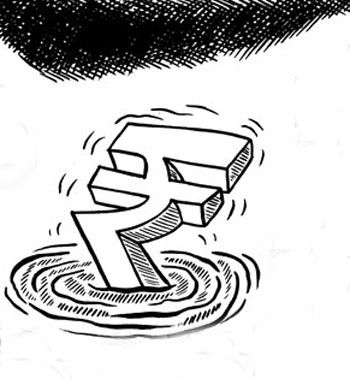India imposes restrictions on how much money its citizens and companies can invest abroad
 India could allow its currency to become fully convertible in about 5-10 years, Reserve Bank of India Governor Raghuram Rajan said in an interview published on financial newspaper Mint's website late on Wednesday.
India could allow its currency to become fully convertible in about 5-10 years, Reserve Bank of India Governor Raghuram Rajan said in an interview published on financial newspaper Mint's website late on Wednesday.
But Rajan warned that openness would come in stages.
"When I look at what we need to get to full capital account convertibility, what it seems to me is that there are only two or three areas where we are less than fully convertible," Rajan said in the interview.
"We have constantly been revising and reducing regulation. Even now, we are looking at all our market regulations to see if we really need some of the constraints and prohibitions and what we can do away with," he said.
"The sequence would be to first reach macro stability and gain confidence (in) it. The next step would be to liberalize much more on certain fronts."
India imposes restrictions on how much money its citizens and companies can invest abroad. Foreign investors investing in India can freely put cash into equities, but they cannot buy more than $80 billion of the country's debt.
Rajan called in April for full convertibility in "a short number of years", having first raised the prospect when he took office in 2013.
Rajan however warned the central bank is still hesitant about opening up foreign currency borrowing without any limits, saying that unhedged exposure could lead to stress on bank balance sheets if the currency depreciates.
In April, a panel formed to examine foreign debt norms had recommended removing restrictions on external commercial borrowings, including caps on the amount companies are allowed to raise.
Rajan said a rate cut by the central bank on Tuesday was necessary to revive growth, but warned that if inflation rises, the RBI will not have room for any more rate cuts this year.
"We are sort of balancing the short run versus the longer run; growth versus inflation and using as much room as we have," he was quoted as saying.
"It does mean that if things pan out as we expect, we don’t have more room (for rate cuts). If they do work better than we expect, some room may build up."
A forecast pointing to the risk of a drought for India this year has prompted expectation that the central bank would not cut interest rates any more this year, dragging Indian stocks and bonds down for two consecutive sessions.
When asked if the rupee was overvalued, Rajan said he was not "unhappy with where the rupee is." But he reinterated the bank's tance that it intervenes only to ward off volatility.
Illustration: Uttam Ghosh/Rediff.com












 © 2025
© 2025